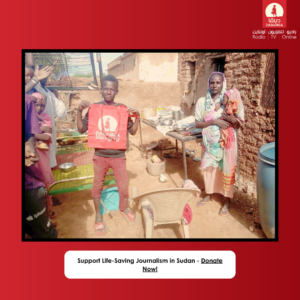Sudan internet shut-down: Call for compensation
The Sudan Telecommunications Professionals Association (TPA) has called for immediate compensation to subscribers, especially prepaid subscribers, for the damages they suffered as a result of the 38-day shut-down of the internet in the country which ended on Tuesday. The shut-down was ordered by the ruling Transitional Military Council (TMC) citing reasons of ‘national security’ following the massacre during the break-up of the sit-in at the General Command of the army in Khartoum on June 3.
 File graphic
File graphic
The Sudan Telecommunications Professionals Association (TPA) has called for immediate compensation to subscribers, especially prepaid subscribers, for the damages they suffered as a result of the one-month shut-down of the internet in the country which ended on Tuesday.
The shut-down that lasted from June 10 until July 9 was ordered by the ruling Transitional Military Council (TMC) citing reasons of ‘national security’ following the massacre during the break-up of the sit-in at the General Command of the army in Khartoum on June 3.
The TPA, that works in cooperation with legal authorities and the Consumer Protection Association to recover the rights of subscribers, stressed the need to review agreements and licenses to provide the service signed between the regulator and the mail and various telecommunications companies, in order to ensure that internet services and communications remain neutral during political crises.
Lawyer Abdelazim Hasan has called on all lawyers to support him in the investigation on the issue of cutting the internet and preparing to file lawsuit against the telecommunications companies to demand compensation for those who suffered from cut off of the internet.
Journalists
The Committee for the Restoration of the Sudanese Journalists Syndicate welcomed the judicial decision to restore internet service.
In a press conference on Tuesday, the committee called for the cancellation of the security decision to close Al Jazeera’s office, calling for it to be re-opened to allow its staff to carry out their work.
The committee stressed the need to provide public and press freedoms and amend and repeal the laws formulated by the former regime.
It also called for an end to attempts to manipulate the press, stop the monopoly of the advertisements, control of its distribution, the financial pressure on the press by imposing taxes and fees on the inputs of the press and press institutions and stop issuing security decisions to local or foreign press institutions.
Our editorial independence means that we can continue to provide factual updates about political developments to Sudanese and international actors, educate people about how to avoid outbreaks of infectious diseases, and provide a window to the world for those in all corners of Sudan. Support Radio Dabanga for as little as €2.50, the equivalent of a cup of coffee.












 and then
and then